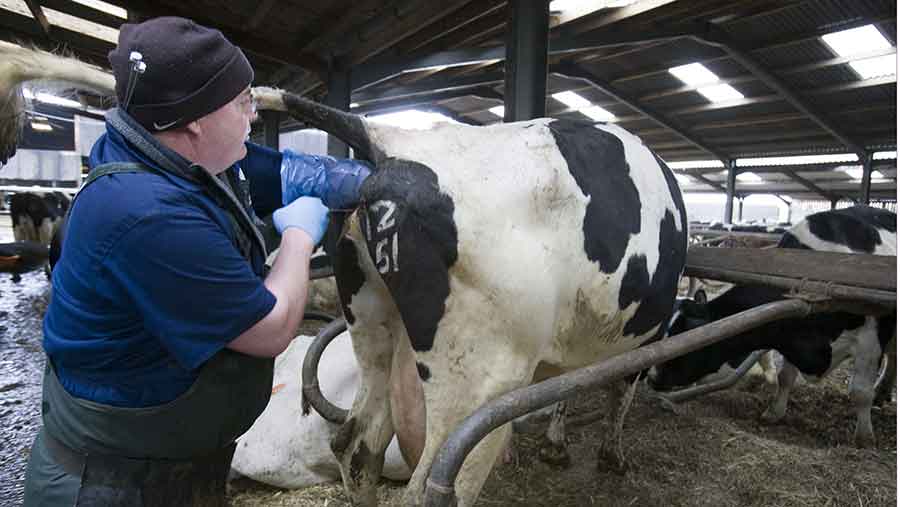New Zealand study pinpoints common causes of early embryo loss
 © FLPA/REX/Shutterstock
© FLPA/REX/Shutterstock Fertilisation failure and impaired embryo development in the first week are the greatest contributors to pregnancy failure, according to a New Zealand dairy study.
Furthermore, BCS and age at calving both increase the risk of embryo loss.
Four farms located in Taranaki, Waikato and Northland were involved in the study over two consecutive breeding seasons with 1,890 cows enrolled.
Cows were randomly allocated into one of four groups at artificial breeding: 8,16, 35 and 70 days after insemination.
See also: 8-step guide to artificially inseminating a dairy cow
Determining embryo losses between 8 and 16 days required removing the embryo from the cow’s uterus by flushing it out.
This is possible because the bovine embryo floats unattached in the uterus until implantation at approximately 20 days after insemination.
Recovered embryos were evaluated based on stage of development, quality of the embryo (based on the probability of producing a viable pregnancy if transferred into a suitable recipient), and serum progesterone levels.
For the remaining two groups, pregnancy rates were determined by ultrasonography 35 and 70 days after insemination.
Submission rates averaged 77% percent and varied between farms, ranging from 67% to 89%, with the majority of cows (96%) presented at the correct stage for insemination.
Results showed that fertilisation failure and impaired embryo development were the greatest contributors to pregnancy losses up to 70 days after insemination:
- Within the first week 34 cows per 100 inseminated had no, or little, chance of establishing a successful pregnancy as a result of acute uterine infection (1%), with 4% not producing adequate levels of serum progesterone to support a pregnancy and a further 13% of embryos arrested in development.
- The final pregnancy rate 70 days after first insemination was 55%, with further embryonic losses incurred at 16 days (5% loss) and another 3% at ultrasound scanning.
Researchers say preliminary results demonstrated a greater risk of embryo loss in the first 16 days following insemination for cows that had a body condition score (BCS) less than 4 at the planned start of mating.
Furthermore, cows that were three and eight years of age experienced greater embryo loss, compared with cows in other age groups.
Based on these results, 100 New Zealand dairy cows submitted for their first insemination would result in only 55 cows pregnant at pregnancy diagnosis at 70 days, the study confirmed.
“These results demonstrate that fertilisation failure and impaired embryo development in the first week are the greatest contributors to pregnancy failure.
“These findings indicate a huge opportunity to improve reproductive performance through science-based solutions for improving egg quality and the early maternal nurturing of a fertilised egg in dairy cows,” said AgReserach senior scientist Debbie Berg.
The work was funded by the Ministry of Business, Innovation and Employment, New Zealand dairy farmers through DairyNZ and AgResearch Core Funding.
This article was originally published in Technical Series, September 2016.
